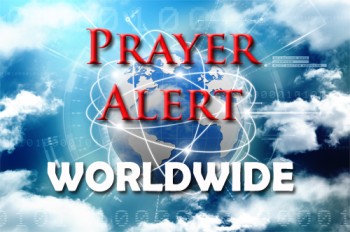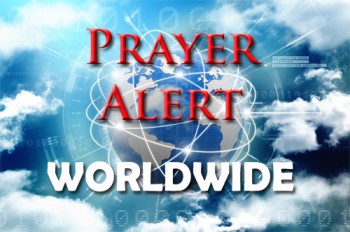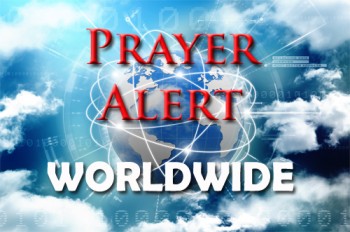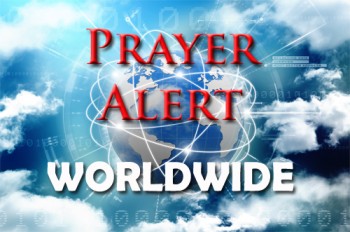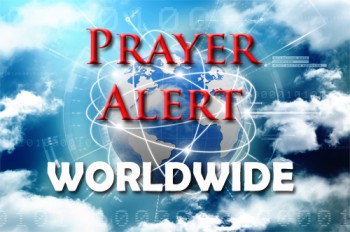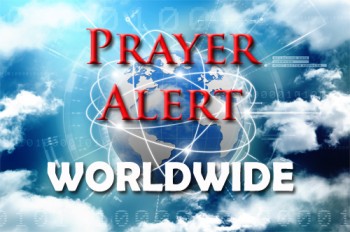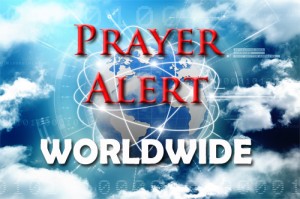Displaying items by tag: AlQaeda
Mali: forty killed in violent attack
Around forty people were killed by unidentified armed men in a village in central Mali on 1 July. The attack, which occurred during a wedding, caused panic and forced many to flee. Survivors reported the attackers surrounded the village and opened fire. No group has claimed responsibility, but groups linked with al-Qaeda and IS have been active since 2015. They have seized territory, making parts of the country ungovernable. Despite promises to tackle insecurity, Mali’s military government, which took power in a 2020 coup, has struggled to control the violence. It has also been accused of human rights abuses. The UN peacekeeping mission in Mali ended its deployment last December, in a pullout ordered by the government.
Somalia: al-Shabaab replacing al-Qaeda
On 2 September, al-Shabaab terrorists killed 18 civilians and destroyed several relief trucks in central Somalia. Al-Shabaab has increased attacks over the summer. In August they killed several Somali soldiers and attacked military bases in Kenya, Mali, and Ethiopia. An attack on a Mogadishu hotel lasting 35 hours killed 21 people. Its leaders want to replace al-Qaeda and expand their reach. Al-Qaeda has not found a leader to replace Ayman al-Zawahiri. If one is not chosen soon, al-Shabaab could declare its East African government separate from al-Qaeda and hope to overthrow the government of Somalia itself. They are receiving resources through forcing people to pay taxes by threatening them, bombing their businesses, or kidnapping their daughters. Despite the danger, many continue to share the story of Jesus. These are not US or European missionaries; they are Muslim background believers living in close proximity in the same culture. World Mission sends them solar-powered audio Bibles in the local language.
Burkina Faso: militants kill 160
Gunmen killed over 160 people in Solhan village, still reeling from a coup and instability. It was the worst attack on civilians in years. Heavily armed militants executed members of a local defense force, killed civilians, destroyed houses, and burned the local market to the ground. No group has claimed responsibility for the attack. Villagers who fled are returning to bury the dead and clear charred sites that used to be homes. The country declared three days of national mourning. Government officials, blaming the attack on ‘barbaric’ jihadists linked to al-Qaeda and IS, vowed to ‘neutralise the terrorists’ responsible. Al-Qaeda and IS fighters move regularly between Niger, Burkina Faso and Mali. The attack is consistent with other militant assaults on villages. Children and elderly are often burnt in their houses because they can’t escape.
Iran/USA: warmongering words
Just days before he leaves office, US secretary of state Mike Pompeo asserted, ‘Al-Qaeda has a new home base in Iran.’ He said ties between Tehran and al-Qaeda vastly improved in 2015, when the Obama administration finalised the deal that saw Iran limit its nuclear enrichment in exchange for lifting international sanctions. In his speech Pompeo urged more international pressure on Tehran, but stopped short of calling for military action, saying, ‘If we chose to do that, there’s a much greater risk in executing it’. The speech could represent an escalation in the US’s ability to use force against Iran; the Trump administration could say it already had congressional approval for an attack on Iran, if al-Qaeda were proved to be on Iranian territory. Several incidents have brought Iran and the USA to the brink of conflict during Trump’s term. The Iranian foreign minister accused Pompeo of ‘warmongering lies’.
Burkina Faso: killed for wearing crosses
Burkina Faso is quickly going from a peaceful farming nation to an extremist breeding ground. Attacks by IS and al-Qaeda militants have quadrupled since 2017. Over 70,000 people have fled their homes this year. Recently, gunmen in the north surrounded a group of people and executed four Christians who they found wearing crosses. Previously Christians, Muslims, religious people, and those with no faith lived together peacefully, but now violence is directed specifically at Christians, looking for religious symbols and attacking churches. The militants are really trying to bring division between the Muslims and Christians with a ‘divide and conquer’ mentality. This extremism can be traced back to the fall of Libya, when militants trickled into neighbouring countries like Burkina Faso, bringing their weapons and violence with them. While the rest of the world was focused on surging extremist movements in east and central Africa, the seeds of militant Islam in West Africa were quietly being sown.
Algeria: door open for Al-Qaeda to grab power
With President Abdelaziz Bouteflika quitting, Al Qaeda terrorists could now fill the political vacuum. Bouteflika held office for 20 years, then the military told him to go following continuing street protests. In March, leading Al-Qaeda official Abu Ubaydah Yusuf al-Anabi urged Muslims to unite to ensure Algeria is ruled by sharia law. Al-Anabi, designated a ‘terrorist’ by the US state department, called on citizens to reject any regional or tribal identities and unite as ‘sons of Islam’ to create an Islamic emirate. The speaker of the upper house of parliament has become the country’s 90-day caretaker president until elections are held. But one protest leader said that the street demonstrations will continue because ‘we do not accept the caretaker government’. Young Algerians are demanding jobs in a country where one in every four under the age of 30 is unemployed, in an economy dependent on oil and gas exports.
Israel: Lasting peace
Metal detectors placed outside a holy site in East Jerusalem brought long-existing tensions to a boiling point. Viewed as an Israeli attempt to assert control over the site, Palestinians responded with protests, boycotts, and even deadly clashes. This all came after the killing of two Israeli policeman by Israeli-Arab gunmen. Israel's compliance in removing the detectors will not bring lasting peace. There is no end in sight to the conflict. Hezbollah, Al-Qaeda, and Iran continue to threaten their existence. Every human attempt at reconciliation in the region has failed. Yet God is moving on both sides of this conflict. He loves Israeli Jews and Arabs and is actively drawing them to Himself. The number of Messianic Jews is rising dramatically, and the Christian Church in Israel is largely Arab. The peace and reconciliation Jesus offers transcends any man-made division. Peace in Israel rests in Him alone.
